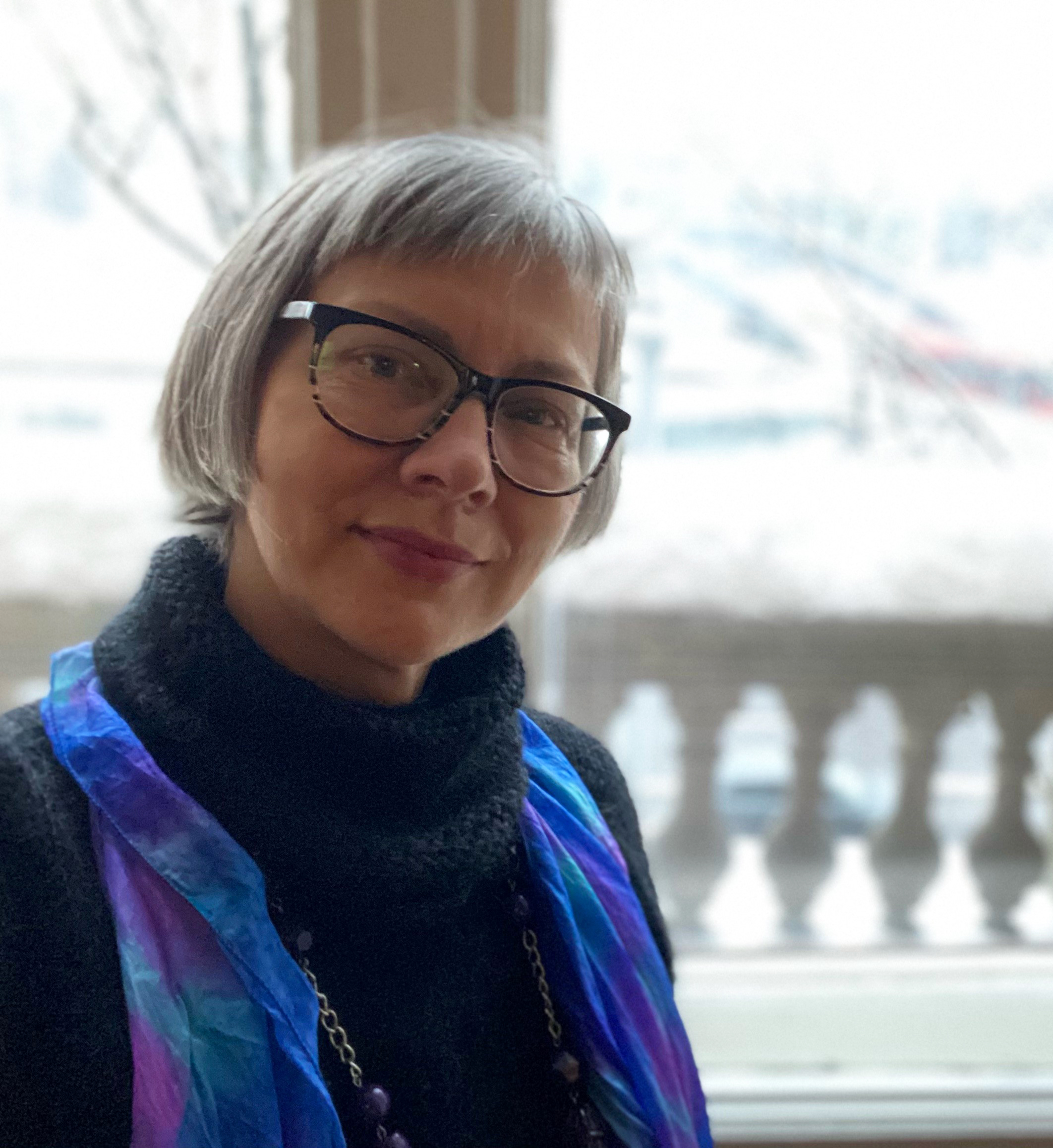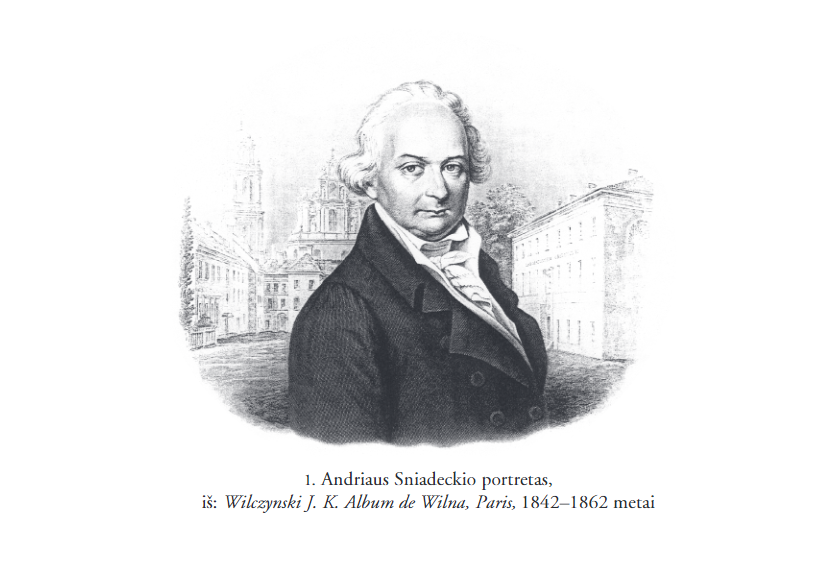 Being a partner in the EODOPEN project, Vilnius University Library, with the approval of the authors, has been digitising books written by the university scholars and published by Vilnius University Press. The project has united 15 libraries of Europe that aims at digitising and opening up 15 thousand documents and literary works from the 20th and 21st century.
Being a partner in the EODOPEN project, Vilnius University Library, with the approval of the authors, has been digitising books written by the university scholars and published by Vilnius University Press. The project has united 15 libraries of Europe that aims at digitising and opening up 15 thousand documents and literary works from the 20th and 21st century.
A series of interviews are being carried out with the authors who support the idea of the project and make their scholarly works accessible for the public. One of them is dr. Birutė Railienė, a member of the Wroblewski Library of the Lithuanian Academy of Science staff. Vilnius University Press published her monography "Andrzej Śniadecki". Through the EODOPEN project, it is now freely available on VU Library Digital Collections.
How and why did you get interested in Andrzej Śniadecki? What are his most significant works?
My doctoral dissertation was on schools of chemistry in Lithuania. When writing historical introduction, I discovered Andrzej Śniadecki. It is impossible not to feel admiration for him.
He wrote several books and around forty articles. I would like to tell more about three most important ones. The first one is "Basics of Chemistry", which was published in Polish language in 1800, 1807, 1816 and 1817, and in Lithuanian language in 2004; another one is "Theory of Organic Beings", the first volume of which was published in 1804, the second – in 1811, and the third one was published alongside with the first and the second in 1838. It is important to highlight that this book was published in German language twice – in 1810 and in 1821, while in French language it was published in 1825. It is great that the book was published in both Lithuanian and English languages in 2018. For some time, Andrzej Śniadecki was consigned to oblivion; however, fragments of his treatises on philosophy and medicine were translated and quoted in Lithuania. The third book "Principles of Physical Education of Children" was published in Polish language in 1805 and in Belarusian language in 2018.
Was he a more talented chemist or a physician?
I am not familiar enough with his work as a physician. Actually, the fact that he wrote both chemistry textbooks and treatises for teaching medicine that were used at Vilnius University for several decades, shows that he was talented in both fields. On the whole, Andrzej Śniadecki was a distinguished professor and orator, therefore his lectures used to attract not only crowds of students, but also pharmacists and townies.
What is your opinion about his methods of education?
Andrzej Śniadecki had some experience in this field as a physician and as a father. His article on physical education of children was published in "Dziennik Wileński" (Vilnius Daily) in 1805. As it was highlighted by many researchers, Śniadecki promoted quite radical and, at the same time, progressive methods of education. His recommendations were based of his medical insights. Śniadecki was the first in the history of medicine to advocate sun baths for rickets prevention. Without accepting someone else's fame, he relied on ancient wisdom. He urged parents to put to sleep their children since infancy on as hard a bed as possible without a pillow in a well-ventilated room and by no means not allow them to sleep in the same room with pets. Śniadecki's encouragement to harness skills of diligence and orderliness hasn't lost its appeal even today. He observed that "even a well-educated young man, when hit by storms of adolescence, without a proper supervision, when preferring bad company, may ruin his life." I am happy with the fact that at last, two hundred and sixteen years later this significant for educology and pedagogy work has been translated into the Lithuanian language (translated by dr. Aistis Žalnora). Let us hope that there will be sufficient funds to publish it in Lithuania.

Rector of Vilnius University, astronomer and professor Jan Śniadecki was as distinguished as his younger brother Andrzej. Wasn't the latter overshadowed by his brother?
There was a malicious rumour that brother Jan was too protective of his younger brother and kept him under his wing his entire life; this was spoken publicly as well. Can that be considered overshadowing? I have not delved deeper into the relationship between the brothers yet, however, I recall with a smile a suggestion that I found in a letter written by Jan, who at the time carried out the duties of Rector of Vilnius University to his brother Andrzej urging him not to waste time for professors' meetings that are meaningless and better allocate that time to lecture delivering, an activity that Andrzej liked a lot.
The beginning of the 19th century is often called a golden age of Vilnius University. Many distinguished and talented personalities worked here. Has Andrzej Śniadecki distinguished himself from the other professors?
As I have already mentioned, Andrzej Śniadecki was a great orator and a talented professor. He wrote that he mastered the art of teaching and showing chemical experiments at the University of Edinburgh and his teacher was the world-famous professor of chemistry Joseph Black.
I feel inspired by the fact that Śniadecki was very popular among students. His birthdays were being celebrated by the entire university. Students would dedicate him verses, odes and even commissioned his bust to sculptor Kazimierz Jelski, who created it in 1838. The bust is kept at Vilnius University Museum. Andrzej Śniadecki was devoted to his profession as a physician as well. As early as in his study years he resolved to get to the bottom of the essence of the disease and he devoted nearly entire life to this task. The last part he completed just before his death.
In my opinion, now the academic world clearly lacks humour. You might have heard about TowarzystwoSzubrawców (the Society of Rascals). Andrzej Śniadecki with some friends founded this society and for many years wrote satirical pieces and was its chairman. Not once he got into trouble for his writings, however, that was the culture of communication at the time.
Was he acknowledged and valued in his own time and later?
Although students loved him a lot, I think colleagues did not appreciate him enough. Historical circumstances – wars, annexation, the closure of the University of Vilnius, uprisings – were not favourable for his wider international acknowledgment. Besides, the majority of his works were published in Polish language, although his most significant work "Theory of Organic Beings" was translated to German and French languages. Śniadecki patiently bore hostility of the university colleagues and discord among physicians of Vilnius, however, he would not waste a chance to write some sharp articles for the satirical newspaper "WiadomościBrukowe" (Street News).
What features of Andrzej Śniadecki's personality are most attractive, interesting or astonishing for you?
I am most impressed by his steadiness and determination to work hard and improve in his field without any ambivalence. Although Andrzej Śniadecki was offered a position in the king's court, besides there were other highly remunerative proposals, he chose the university where he could steadily devote himself to the education of the young generation. Andrzej Śniadecki devoted to the university nearly forty years. His self-sacrifice is inspiring as when the university was closed during the war, he did not flee or hide in a secluded mansion, which was 60 kilometres from Vilnius, but stayed with other physicians and provided people with medical care.
Is his personality sufficiently researched and presented in Lithuania and Poland?
The first publication on Andrzej Śniadecki in Lithuanian language was published in 1905 by Petras Vileišis in his book "Praeitie Vilniaus" (The Past of Vilnius). It took as long as fifty years to appear the second publication and that was "Senasis Vilniaus universitetas" (The Old Vilnius University) by Mykolas Biržiška. Some more information on Andrzej Śniadecki in Lithuanian language appeared much later. In 2012, in an attempt to fill this information gap, alongside with those interested in his personality, we initiated readings dedicated to Śniadecki - Lectiones Andrea Sniadecki. They were initiated as an idea of those interested in the history of science, medicine, culture and Vilnius University to promote Śniadecki's achievements in science and culture. The first readings took place on 30 November, on the same day, when many years ago Andrzej Śniadecki's birthday was celebrated at Vilnius University. Later we kept to the same tradition and held the readings on 30 November or on the Friday which is closed to this date. In 2012 the group which initiated readings gathered in a house, where Andrzej Śniadecki used to live many years ago. At present the French Institute of Lithuania and a bookshop are housed in that building; at the time it had a cafe and the first readings were held in there. We continue the tradition to hold readings in places that are historically related to Andrzej Śniadecki. Every year attendees of readings learn something new about Andrzej Śniadecki and his activities. His chemistry textbook, a lecture on alchemy and history of chemistry, a satirical piece on medicine "On Serious Disease Juromania", fragments from his works on medical approach to nutrition as well as fragments from Śniadecki's satirical prose were translated into the Lithuanian language. An outstanding play, based on Śniadecki’s satirical and philosophical works "Juromania: its clinical record, diagnosis and treatment according to Andrzej Śniadecki" was directed and performed by the actor Rolandas Kazlas. In 2018, while celebrating 250th birth anniversary of Andrzej Śniadecki, his philosophical treatise on the theory of organic beings was translated into both the Lithuanian and English languages. Translations and publishing of the books were financed by "Thermo Fisher Scientific" and Vilnius University. In the same year an exhibition of Andrzej Śniadecki's portraits, prepared by Neringa Markauskaitė from the Wroblewski Library of the Lithuanian Academy of Science, was held at the Life Sciences Centre of Vilnius University; the exhibition was followed by the book "The Portraits of Andrzej Śniadecki". This project was financed by the Lithuanian Council for Culture. Quite a lot has been done in that year to promote the legacy of Andrzej Śniadecki.
We cooperate with the colleagues from Belarus. They also have similar readings, which are attended by delegations from Lithuania.
Are you writing or going to write some other work about Śniadecki? Are there unresearched areas of his life or scholarly works?
My book on Andrzej Śniadecki was published in 2005. At present it is being translated into the English language. The translation is financed by "Thermo Fisher Scientific". The book will be supplemented with several texts that have never been published yet. I hope that the translation will help to find new admirers of Andrzej Śniadecki in the 21st century.
It is amazing that historical spaces and buildings there he used to live and work have survived to the present day. We should speak more about the 19th century university professors to students and our quests. I should add that such a professor as Andrzej Śniadecki, who was completely devoted to students, is of great value and we should take pride in the fact that we had such people among us.
Nijolė Bulotaitė
2021-02-05
